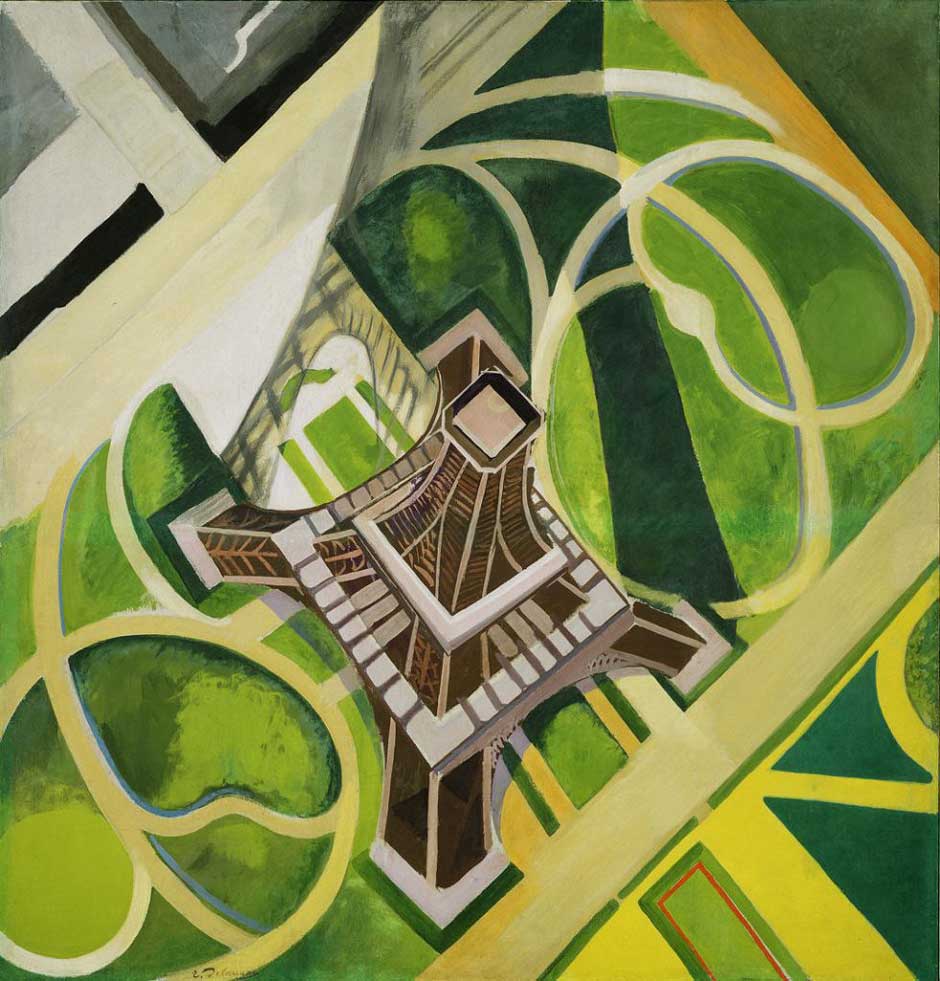for Robert Delaunay
Tour Eiffel
Guitare du ciel
Guitar of the sky
Attracting words
to your telegraphy
like a rosebush its bees
At night
the Seine stops flowing
Telescope or bugle
EIFFEL TOWER
It’s a hive of words
an inkwell of honey
At the end of dawn
a spider with wire legs
spun a web of clouds
My boy
to climb the Eiffel Tower
you climb up on a song
Do
re
mi
fa
so
la
ti
do
Nous sommes en haut
We’re at the top
A bird sings It’s the wind
in the telegraph of Europe
antennas the electric wind
Hats fly off
They have wings but can’t sing
Jacqueline
Daughter of France
What do you see up there?
The Seine’s asleep
under the shadow of its bridges
I can see the Earth turning
and I blow my bugle
to all the seas
On the road
of your perfume
all the bees and all the words take off
On the four horizons
who hasn’t heard this song
I AM THE QUEEN OF THE DAWN OF THE POLES
I AM THE COMPASS ROSE OF THE WINDS THAT
FADES EVERY FALL
AND FILLED WITH SNOW
I DIE FROM THE DEATH OF THAT ROSE
ALL YEAR LONG A BIRD SINGS INSIDE MY HEAD
That’s how the Tower spoke to me one day
Eiffel Tower
Aviary of the world
Sing Sing
Bell-clang of Paris
The giant hanging in the void
is a poster for France
On the day of Victory
you’ll tell it to the stars
The Chilean poet Vicente Huidobro (1893–1948) is one of the few poets of the century whose life deserves a fat biography, which has never been written. In the thick of modernist “isms,” he created his own—Creationism—of which he was the only member, and which instructed poets not to sing of the rose, but to make it bloom in the poem. He collaborated or fought with nearly everyone in the international avant-garde, participated in the Irish Liberation and the Spanish Civil War, made paintings of his poems, was a screenwriter in Hollywood, a candidate for president in Chile, and never recovered from the wounds he received as a correspondent in the Second World War. His book-length poem of an “antipoet” hurtling through Einsteinian space, Altazor, is surely the fastest-reading, most entertaining long poem of modernism. He wrote in both Spanish and French (and occasionally English)—sometimes writing the same poem in both of his primary languages, so it becomes unclear which is the “original” and which the “translation.” “Eiffel Tower,” inspired by the paintings of Robert Delaunay, was written during World War I in French, and this translation attempts to play, as Huidobro often did, with his bilingualism.
—E.W.
This poem will appear in Elsewhere, edited by Eliot Weinberger, to be published by Open Letter Books in March 2014.



